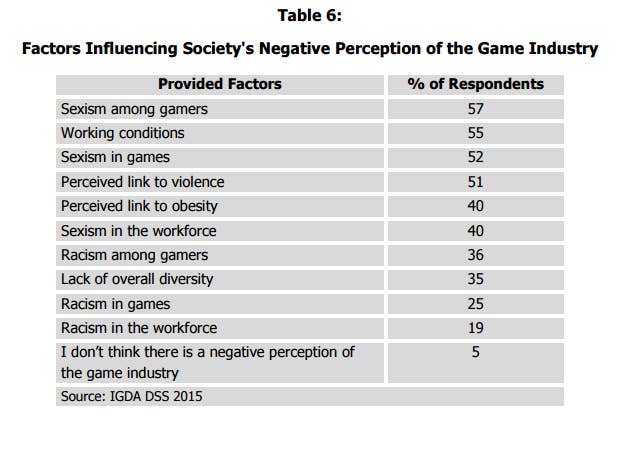Two thirds of devs still working crunch, some at 70 hours a week
Over a third aren't compensated for the overtime
A developer study from the IGDA has revealed that, despite increased awareness and a general improvement of working conditions within the industry, 62 per cent of industry workers still consider crunch time to be an inescapable part of their careers. Almost half of those working crunch are pulling 60 hour weeks, with 17 per cent clocking up 70 or more hours of office time during the crunch period.
What's worse is that most studios still don't properly compensate their employees for all the extra work. 37 per cent of those who said that crunch was part of their job said that they received absolutely no recompense for it whatsoever. A further 28 per cent said that they were offered non-monetary rewards such as meals whilst working into the small hours, and 18 per cent were given time off in lieu. 12 per cent got both small perks and extra time off.
How many of those felt that free pizza was adequate compensation for their time was not reported, but 55 per cent of all respondents did say that they felt that poor working conditions were a major contribution to a poor public perception of the sector, driving away talent. Still, sexism amongst the gaming audience trumped long hours as the biggest factor, with 57 per cent of developers feeling that it was putting the industry in a negative light. In third place, with 52 per cent choosing it as a factor, was a sexist attitude within the games themselves.
The entirety of the report, which was open to all developers is available online here. It's an extensive and detailed examination of a snapshot of the industry, largely in North America, which covers everything from platform to genre to salary, for workers at multinational publishers, small scale studios, freelancers and lone-wolf indies. Nonetheless, the IGDA recognises that this is not a complete or balanced representation.

"However, we should bear in mind that the majority of respondents were working in the United States and made up more than half of the sample, while the overall North American representation was brought to 67%," the report reads.
"While North America plays an undeniably large role in the global video game industry, developers in this part of the world may still be overrepresented in the picture painted here. The same can be said of people who work at large studios, as 37% of all respondents and more than half of salaried workers share the workplace with more than 100 other workers. Among salaried workers, only 15% indicated that they work at a company with less than 10 people, though this increases to 36% when freelancers and the self-employed are included.
"Developers are still young, male, white/Caucasian/European and most of them do not have children or elder care responsibilities. They are highly educated and two-thirds of them have been trained in specialized programs relevant to game design or game development."
In an analysis of the results, the survey identified some points of action - the clear issues which must be addressed by the industry as a whole and the individuals within it.
- The demands on employees' contributions versus fair compensation for their time spent at work (i.e., compensation for "crunch" time).
- The continued underrepresentation of women and the incidence of sexism in the workforce, in games themselves, and in the broad gaming community - combined with a perception that the industry doesn't provide equal opportunity for all.
- A strong desire by employees to give their time and passion to an employer, sharply contrasted by high rates of job changes over short periods of time.
- The diverse experiences and challenges of different workers in the industry (i.e., salaried employees, freelancers and the self-employed) and the need to devise suitable approaches to support each group
"Insights from 2015 show that those who work in the game industry are passionate about their jobs and the number who desire to contribute to the industry for the entirety of their careers is steadily increasing. The global workforce is slowly increasing in its diversity while developers are generally gaining better wages and benefits. "

